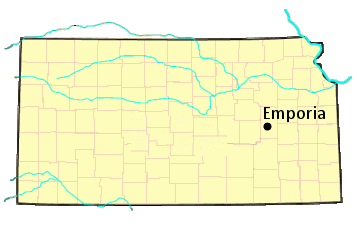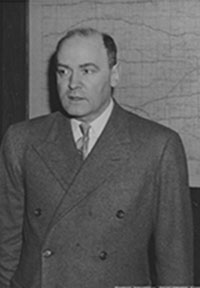The Athena Power and Light Company was founded at the turn of the century, and in 1912 Isaac Norssex bought it and moved his family to town from Elm Valley. They moved into a large brick house on Federal Street, where most of Athena's big houses were. The lawns were three or four lots wide and in the center of each was a canna bed flanked with elephant ears, which was carefully watered with the hose on hot summer evenings.
The subtantial people in Athena accepted the Norssex slowly. They felt it was a little presumptuous for them to buy on Federal Street as soon as they came to town. Just because you lived on Federal Street didn't mean you immediately became intimate with Athena's first families, whose fathers had organized the first stores in the sixties, and had saved their money and invested it in big pastures and ranches in the seventies and eighties.
The older men had a feeling that young Issac Norssex was tricky in business. They agreed he was smart. But what did he have back of him? He had started as a trader in the equities of small light companies-buying, developing, consolidating, selling only to buy again.
The power business was probably all right. But it was new. Probably it was going to be permanent-maybe it was going to expand. Yet in the early twentieth century it was not so respectable as running a bank or general store.
---from What People Said by William Lindsay White
To further his bond business, his attention turned more and more to Topeka and the Statehouse. In the winter of 1931 he lobbied a bond exchange bill through the legislature to passage ("I got a bill through the legislature" is the way he put it). Finney hired Leland Caldwell as his general factotum about this time. Caldwell, who had spent a year in Tom Boyd's Treasury Office, knew the ropes. Finney set Caldwell to work making a complete list of all the bond issues that would be eligible for exchange under the proposed law. Even though the bill was amended in an attempt to thwart him, Finney estimated that he cleared about $30,000 from the legislation. By this juncture the Finney repertory of skill, both legitimate and illegitimate, had fully matured and had begun to be finely honed-though the forging of bonds and warrents was still to be invented. In his "novel" What People Said, Bill White has Finney (as Lee Norssex) crassly crowing at this period that he would size up an adversary and "then I'd either tell him to go to hell or buy him off, 'cording to whichever was cheaper.'"
---about Ronald Finney/Lee Horssex, main character of What People Said from The Great Kansas Bond Scandal, by Robert Bader
The novel, which was widely read and well recieved by critics both in Kansas and in New York, was a Book-of-the-Month Club selection and gained the national best-seller list. (William Allen White, who was one of the original judges for the club, abstained from voting on the book.) The leftists New York literary crowd thought that it was fine social commentary-a telling indictment of the decadent capitalism and the mores of small-town plains-state culture. Despite the author's statement that he had not intended to portray any actual persons, Kansans quickly perceived that it followed the events of the bond scandal very closely indeed. Paul Jones, editor of the Lyons News, thought that White had written a mighty fine book. But-referring to White's claim that it was strictly a work of fiction-the veteran newspaperman declared that "it starts off with a -------lie." All the major characters in the bond scandal and many minor ones could be readily identified. In the following months it became a popular Kansas parlor game, especially around Topeka and Emporia, to try to identify a neighbor, or hopefully oneself, in the novel.
---about The Finney Bond Scandal and What People Said from The Great Kansas Bond Scandal by Robert Bader
Return to Top of Page |





